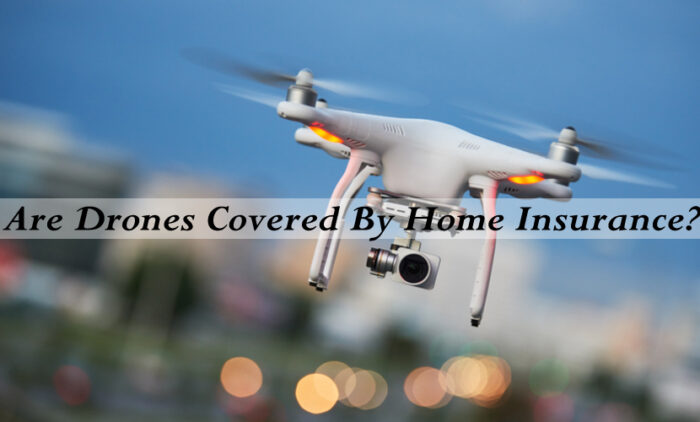Are drones covered by home insurance? In today’s technological world, drones have surged in popularity, serving a multitude of purposes, from professional surveys to recreational photography.

As these unmanned aerial vehicles (UAVs) become increasingly integrated into our daily lives, a pressing question arises for drone owners: Are drones covered by home insurance?
However, this inquiry isn’t merely academic; it holds significant practical implications for both dedicated drone enthusiasts and casual hobbyists.
On one hand, traditional home insurance policies, designed to provide peace of mind against the unexpected, now face the challenge of adapting to the unique risks and liabilities associated with drone usage.
The answer to this question isn’t straightforward. Several factors come into play, including the evolving legal landscape surrounding drone operations, the specifics of the insurance policy, and the nature of drone use.
In this article, we’ll explore the complexities of drone coverage under homeowners insurance policies and offer guidance to owners on how to ensure adequate protection.
Are Drones Covered By Home Insurance?
When it comes to whether drones are covered by home insurance, here’s the deal: Whether your home insurance policy covers your drone depends on the specifics of your insurance policy and the situation in which your drone was involved in an accident, lost, or damaged.
Most homeowners insurance policies do provide some level of drone coverage, but there are some important differences to keep in mind. These include:
Personal Property Damage
As drones are typically categorized as personal belongings, they might fall under the personal property coverage of your policy.
This means that if your drone is damaged by a covered event or stolen, your insurance provider may offer compensation.
However, it’s important to note that deductibles and coverage limits will come into play, so review your policy’s details.
Liability Coverage
If your drone causes damage to someone else’s property or injures someone, the liability coverage in your homeowners’ insurance policy may step in to protect you against claims for property damage or bodily injury.
For example, if your drone accidentally crashes into your neighbor’s window, your policy may cover the repair costs.
When Does Insurance Cover Drones?
Getting coverage for your drone from your insurance company depends on how you use your drone:
Commercial Use
If you use your drone for business or professional purposes, such as filming a wedding or an event, it’s considered commercial use.
In this case, your renters or homeowners insurance won’t cover you. However, you can purchase a commercial drone insurance policy to ensure you’re protected in these situations.
Recreational Use
Conversely, many renters and homeowners insurance companies classify drones as hobby or model aircraft.
Therefore, if you primarily use your drone for personal purposes, your policy may cover it as personal property.
When Do You Not Receive Coverage?
Just like other types of insurance, there are situations and scenarios when you will not get coverage for your drone. Although these conditions differ by insurance companies and regions, here are some circumstances when your drone will not get coverage:
- Illegal activities.
- Losses and damages beyond geographical limits or coverage period.
- Negligence.
- Stunts or racing.
- Flying in restricted areas.
- Failure to adhere to the claims process.
- Unauthorized modifications.
If you want to ensure you have adequate coverage for your drone, it’s important to fully understand the conditions and terms outlined in your insurance policy.
In addition, it’s important to follow all rules and regulations related to drone usage and to operate your drone responsibly.
How To Get Drone Coverage from Home Insurance
If you fully understand your existing insurance policy, you can potentially obtain drone coverage through your home insurance policy.
However, it’s important to grasp any additional endorsements or coverage options available, as well as the specific intended use of your drone.
So, if you’re interested and have clarity on these aspects, here’s the guide you need to successfully and efficiently navigate through the process:
- Go through your current homeowner policy.
- Pay attention to exclusions and limitations.
- Understand the use of your drone.
- Discuss with your insurance company or provider.
- Consider additional coverage.
- If necessary, adjust or make changes to your policy.
- Stay up-to-date with the changes in policy and regulation.
- Keep records.
If you do this (have accurate records), when filing a claim, this will streamline and make the process easy and make sure that you will get enough coverage that you need.
Conclusion
If you can understand your policy details, how you plan to use your drone, and have a discussion with your insurance provider about it, securing drone coverage through your home insurance should be relatively simple. While it may take some time, the effort is worthwhile in the end.


